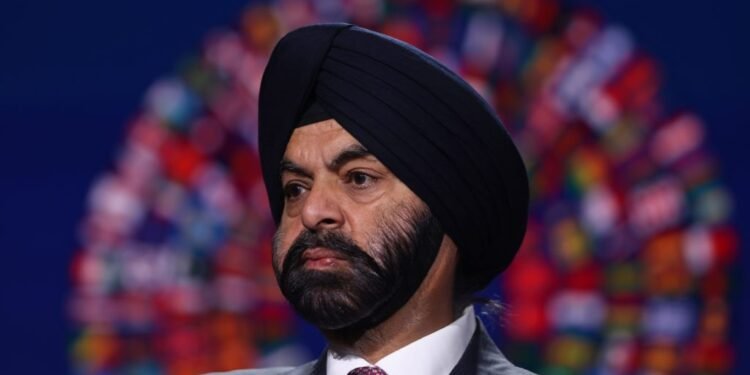Ajay Banga, the World Bank’s new president, said the lender must become faster, more efficient and eventually larger so that it can help fund some of the trillions of dollars in global development needs and maintain its relevancy in the coming decades.
Changes at the world’s largest anti-poverty lender will boost its lending capacity by about $150 billion over the next decade, Banga said Wednesday in Marrakech, Morocco, during the annual meetings of the bank and the International Monetary Fund.
Adjustments to areas including loan guarantees and hybrid capital can boost lending capacity by 15%-20% and leverage resources six to eight times, but still be won’t be enough to meet global needs.
ADVERTISEMENT
CONTINUE READING BELOW
Banga signaled that once changes are made to maximize the use of the lender’s existing resources, a plan spurred by the Group of 20’s review of multilateral development banks’ so-called capital-adequacy framework released last year, he’ll eventually push for more capital for the bank.
“I’m definitely going to go back to our shareholders to seek a bigger bank” Banga said. “I believe that is what the world needs for the next coming decades.”
Other countries will be watching the US Congress closely to see if it approves the funding promised by President Joe Biden and Treasury Secretary Janet Yellen, which Banga said he’s optimistic about. Partisan squabbles in the US are threatening not only support for the World Bank but aid for Ukraine.
Banga took over from David Malpass, who was nominated by former President Donald Trump in 2019 and in February announced plans to step down almost a year early. His presidency gives the Biden administration a chance to evolve the Washington-based institution toward a greater focus on climate change, as environmental activists had said Malpass wasn’t providing leadership on the issue.
The former Mastercard Inc. chief executive officer said that the Group of 20’s “Common Framework” for debt restructuring is starting to yield results, noting Zambia’s efforts to rework its debt with official creditors, as well as advances with Ghana and other nations.
“The question of ‘Should you replace the common framework with something?’ You’ve got to have a really good idea of what you think that something is, before you blow up the only thing that’s beginning to work,” Banga said.
He added that the sovereign debt roundtable, which the IMF and World Bank launched earlier this year with the Group of 20 and set to meet again on Thursday, is also helping to address the problem of the speed of restructuring.
© 2023 Bloomberg










